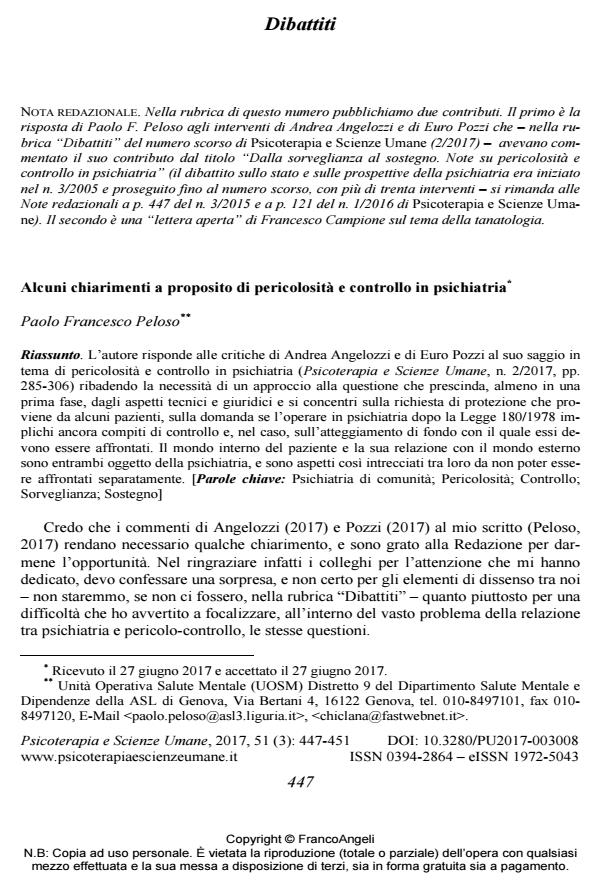Some clarifications on dangerousness and control in psychiatry
Journal title PSICOTERAPIA E SCIENZE UMANE
Author/s Paolo Francesco Peloso
Publishing Year 2017 Issue 2017/3
Language Italian Pages 5 P. 447-451 File size 127 KB
DOI 10.3280/PU2017-003008
DOI is like a bar code for intellectual property: to have more infomation
click here
Below, you can see the article first page
If you want to buy this article in PDF format, you can do it, following the instructions to buy download credits

FrancoAngeli is member of Publishers International Linking Association, Inc (PILA), a not-for-profit association which run the CrossRef service enabling links to and from online scholarly content.
In this rebuttal, the author responds to the criticisms made by Andrea Angelozzi and by Euro Pozzi to his contribution on dangerousness and control in psychiatry (Psicoterapia e Scienze Umane, issue no. 2/2017, pp. 285-306). He returns to the need for an approach to this problem that, at least in the first phase, ignores the technical and legal aspects involved. Such an approach must focus on the request of protection that comes from some patients, on the need of control that at times are proper to psychiatric work, and on the basic attitude with which they must be addressed. Psychiatry is involved in both inner and outer worlds of the patient; these aspects are so closely intertwined in the same person that they cannot be faced separately from each other.
Keywords: Community psychiatry; Dangerousness; Control; Surveillance; Sustain
- "Ritorno a Basaglia": una prospettiva possibile per la salute mentale? "Back to Basaglia": A possible perspective for mental health? Paolo Francesco Peloso, in PSICOTERAPIA E SCIENZE UMANE 4/2022 pp.593
DOI: 10.3280/PU2022-004005
Paolo Francesco Peloso, Dibattiti. Alcuni chiarimenti a proposito di pericolosità e controllo in psichiatria in "PSICOTERAPIA E SCIENZE UMANE" 3/2017, pp 447-451, DOI: 10.3280/PU2017-003008